
VAT on Gold and Diamonds Businesses in Dubai, UAE - 2025
In 2025, gold and diamond businesses in the UAE remain subject to 0% VAT under the reverse charge mechanism, provided both parties are VAT-registered and meet compliance conditions. However, any retail sale to end consumers is taxed at 5% VAT, making proper VAT registration and invoicing essential.
Table of Contents
Related Articles


The Impact of CARF on UAE Crypto Traders | Ready to Report FTA

Feasibility Study Report Preparation in UAE

Let's Talk
Sign Up For Free Consultation
VAT on Gold and Diamonds Businesses
Navigating VAT regulations in the gold and diamonds sectors can be complex, especially as the flow of gold and diamonds among registered businesses requires thorough documentation. Tulpar Global Taxation Services understands the unique challenges that gold and diamond merchants face, from input VAT collection to compliance with VAT treatment and eligibility for VAT exemption. Businesses dealing in precious metals must meet stringent requirements, especially in areas such as gold sales, where input tax recovery rules and import taxation become critical for seamless operations. Tulpar’s specialized expertise aids businesses purchasing gold and diamonds in aligning their transactions with VAT laws, ensuring compliance and minimizing potential disruptions.
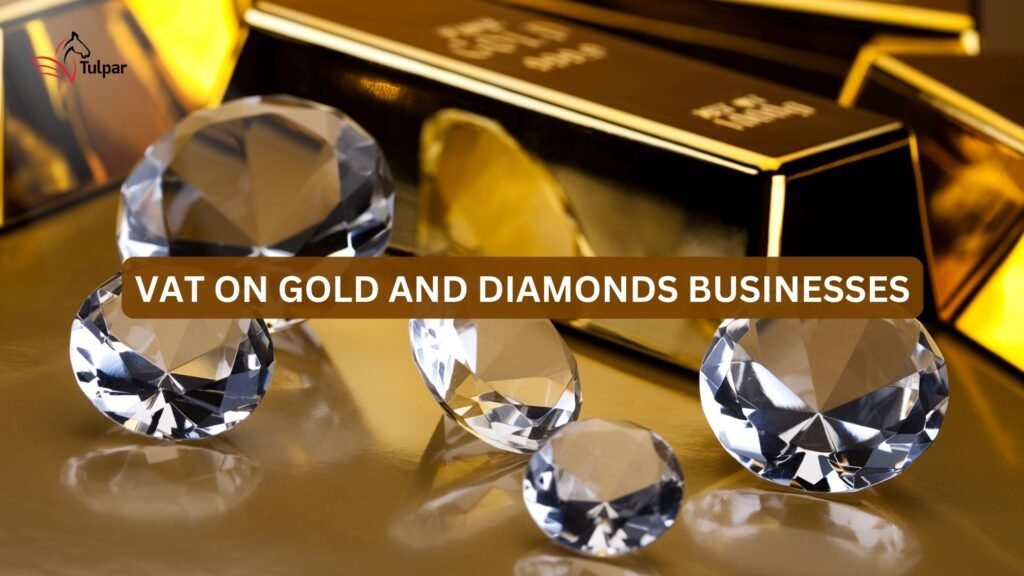
Commercial dealers and gold jewellers face specific Value Added Tax rules when engaging in gold trade. For instance, VAT treatment varies between registrants, especially in handling input taxation on eligible gold and investment precious metals. Transactions of gold and diamonds between registrants often require clarity regarding single consideration, where VAT is applied to both goods as a single entity. This impacts not only the merchant with gold but also those involved in the business flow of gold and diamonds. By providing a structured approach, Tulpar Global Taxation Services helps gold and diamond dealers manage VAT liabilities without compromising on cash flow, even amidst the challenges posed by imports of gold, which have amounted to significant figures in recent years.
Businesses must remain vigilant to avoid severe cash flow constraints due to mismanagement of VAT requirements. For gold jewellers and other entities dealing in these precious commodities, eligibility for VAT exemption is crucial to reducing operational costs. Tulpar Global Taxation Services supports such businesses by implementing tailored strategies that maximize input tax recovery and optimize compliance with Value Added Tax rules. In a sector where VAT missteps can lead to costly penalties, Tulpar’s comprehensive approach ensures that businesses dealing in gold and diamonds are well-prepared to handle the complexities of VAT and can thrive in a competitive marketplace.
Understanding Value Added Tax (VAT)
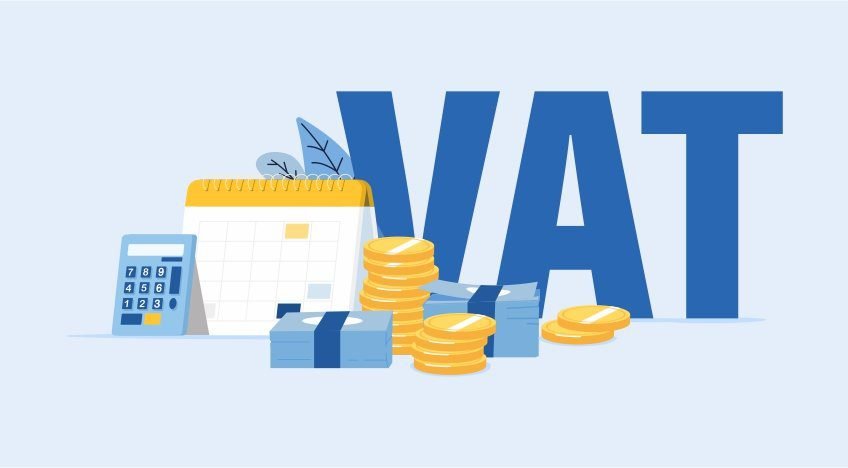
Value Added Tax (VAT) is a consumption-based tax applied at each stage of production and distribution in the supply chain, affecting products as they increase in value. In the UAE, VAT impacts a wide range of goods and services, including the high-demand sectors of gold and diamond jewelry, where the principal component is often high-value gold. For businesses engaged in gold trading, VAT implications are critical for maintaining compliance, supporting cash flow, and ensuring accurate VAT returns. Tulpar Global Taxation Services offers specialized VAT consulting for gold traders, gold jewelers, and other VAT-registered entities in the diamond industry, guiding them through the complexities of VAT on the gold and diamonds sale among other luxury items.
Key Regulatory Changes Affecting Gold and Diamond Transactions
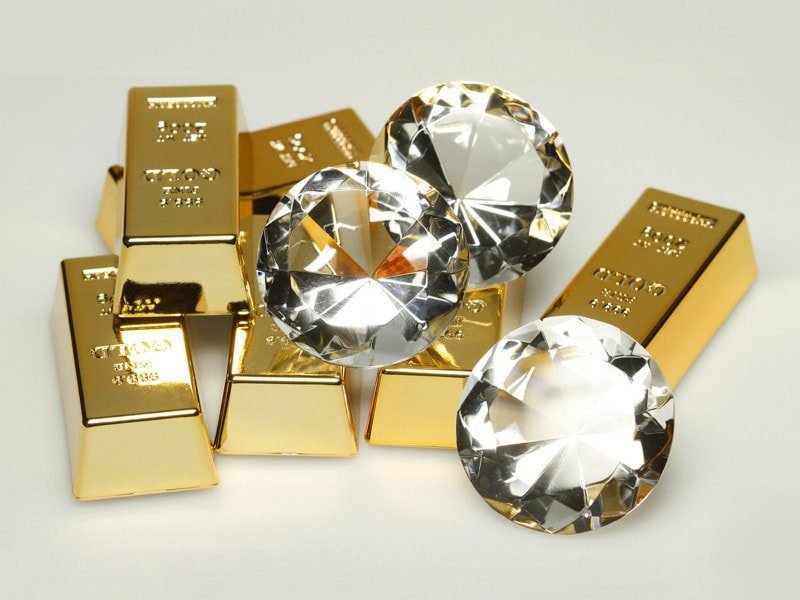
In recent years, UAE regulators have introduced several key changes to the laws for gold and diamond transactions. These updates have aimed to support registered businesses and international investors, making Dubai an increasingly attractive destination for gold shopping. Some regulatory changes also address VAT on the sale of gold and diamond jewelry, providing tax exemptions for certain transactions, particularly when the principal component is gold. Gold trading dealers, investors in gold, and VAT-registered entities should keep updated with these regulatory shifts to avoid potential cash flow issues and ensure proper documentation for all transactions. Tulpar Global Taxation Services is a trusted partner for traders and investors, providing accurate guidance to stay compliant with the latest VAT policies and compliance requirements.
The Reverse Charge Mechanism Explained
A significant aspect of VAT in the UAE’s gold and diamond sector is the reverse charge mechanism. This provision ensures that businesses supplying gold and diamonds among themselves do not have to pay VAT at the time of purchase. Instead, the VAT liability is transferred to the buyer, who then accounts for it in their VAT returns. This mechanism alleviates cash flow issues for gold trading dealers and registered businesses, allowing smoother operations within the supply chain. The reverse charge mechanism particularly benefits the business-to-business supply of gold items and diamond jewelry, where incidental elements such as labor and manufacturing may be involved. To fully leverage these benefits, Tulpar Global Taxation Services provides a checklist for input tax recovery, guiding clients on applicable conditions and compliance to optimize their VAT processes.
Updates to Compliance Requirements for Traders
Gold and diamond traders must adhere to precise compliance requirements due to VAT, including detailed documentation and timely VAT returns. In cases where the principal component is gold or other central components, it’s crucial to determine the applicability of VAT based on whether the items are for retail, gold investment bars, or business supplies. Compliance includes requirements for input tax recovery on eligible purchases, adherence to tax exemptions, and accurate calculation of VAT on all supplies of gold. Tulpar Global Taxation Services assists traders and VAT-registered entities by clarifying public clarifications, assisting with VAT-registered transactions, and ensuring that businesses are aligned with the regulatory standards that protect their compliance status.
With support from VAT consultants like Tulpar Global Taxation Services, gold traders, and dealers in the diamond sector can navigate the complexities of UAE VAT law while making informed decisions. From gold prices to interlinked components like incidental charges for gold and diamonds, having expert guidance on VAT laws can significantly impact profitability and growth rates in these high-value markets.
Implications of VAT for Gold and Diamonds Businesses in UAE

The application of VAT on gold and diamond-based products introduces specific implications for businesses in this sector. As gold and diamond hold unique economic significance, governments often regulate their Tax rates distinctively, aiming to stimulate investment in this high-value market. For businesses dealing in gold and diamonds, understanding the VAT rate, compliance rules, and scenarios like the reverse charge mechanism is crucial. This insight helps manage VAT in gold and diamond transactions, maintain accurate financial reporting, and ultimately ensure seamless operations. Tulpar Global Taxation Services provides specialized guidance to help these businesses handle the unique aspects of VAT, ensuring compliance, optimization, and accurate VAT collection.
VAT on Single Composite Supplies
In transactions involving a single composite supply, VAT is applied based on the principal component within the transaction. For example, if a product’s crucial component is gold for resale purposes and additional elements like craftsmanship or precious stones are added, the VAT on gold and diamonds is collected on the single price of the composite item. Here, the VAT is applied at the standard rate applicable to the principal component. With professional VAT consultants like Tulpar Global Taxation Services, businesses can determine whether a product’s principal component is subject to the standard rate or qualifies for exemptions or reduced rates. This ensures that businesses dealing in gold maintain proper VAT records for compliance.
VAT on Multiple Composite Supplies
When transactions include multiple composite supplies, each part is treated separately for VAT purposes. For instance, if a business sells a gold and diamond piece where gold is a principal component but charges additional fees for custom settings or stones, each item or service may attract VAT individually. This approach ensures that VAT is collected on each supply component as required by law. VAT on multiple composite supplies can be complex, and Tulpar Global Taxation Services assists businesses in determining the VATax rate for each component, ensuring that charges of gold received, customizations, or export of gold items adhere to proper VAT applications.
VAT on Making Charges for Gold Items
In the gold and diamond jewelry sector, making charges represent a common additional element in the final price of gold items. VAT is applied to these making charges since they are part of the final taxable value of the item. Whether the jewelry is for resale or export, the charges associated with making the item must be considered for VAT calculation. Some businesses may choose to apply the reverse charge mechanism when exporting jewelry or selling it for the purpose of resale, reducing their upfront VAT liability. Tulpar Global Taxation Services advises businesses on properly applying VAT to making charges, helping to maintain accurate VAT returns and benefit from one of the lowest VAT rates in the UAE for qualifying gold and diamond items.
By collaborating with experts like Tulpar Global Taxation Services, businesses can effectively handle VAT complexities, such as single and multiple composite supplies and making charges, ensuring they fully comply with Value Added Tax rules and maximize investment potential in the gold and diamond markets.
Responsibilities of Suppliers Under New VAT Regulations
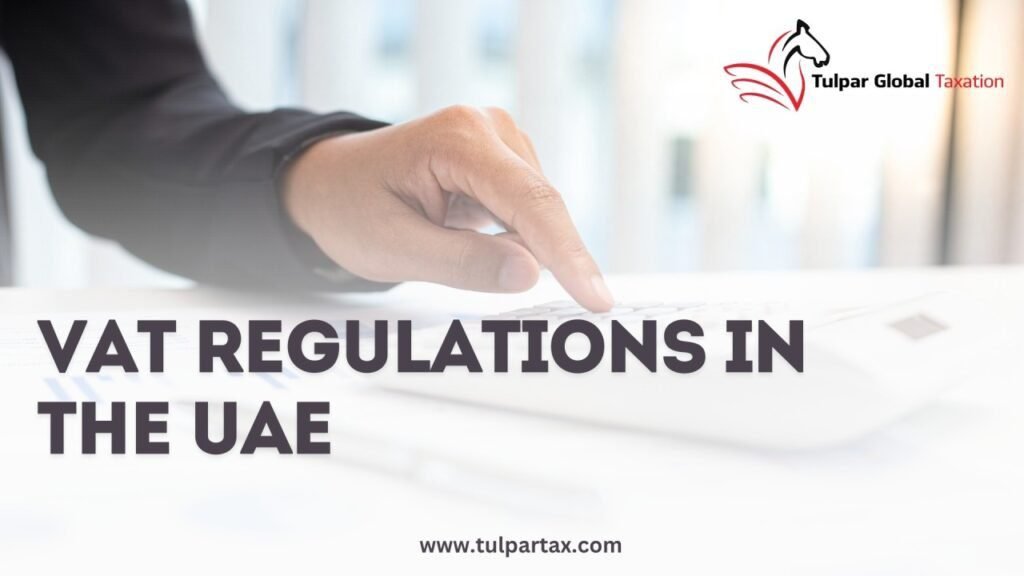
Under the new VAT laws, suppliers in the gold and diamond sectors are required to asses VAT on all taxable supplies of goods and services, including sales of gold, diamond jewelry, and any related consultant services. The introduction of VAT on these economic sectors has redefined the obligations of business owners, particularly in terms of VAT on supplies. All traders, whether dealing in gold, diamonds, or jewelry, must comply with VAT liabilities and ensure they are properly registered for VAT. Failure to adhere to these regulations could result in penalties, fines, or complications in tax compliance.
In light of these new Value Added Tax rules, suppliers are also responsible for the proper treatment of gold making charges and gold-making charges, which are considered an important service component in the gold industry. Exemptions on gold are available in certain situations, including for exports of gold, but businesses must carefully consider the conditions for input tax to ensure they comply with the tax law.
Additionally, suppliers must ensure that all relevant previous VAT return filings are accurate and up to date. It’s also essential to understand the time of filing VAT returns, as delays could affect business operations. For those in the diamond and gold industry, Tulpar Global Taxation Services can provide specialized consultancy to navigate the complexities of the VAT system, ensuring businesses operate within the scope of the new regulations.
Impact of VAT on Traders in the Gold and Diamond Sector
The introduction of VAT has a significant impact on traders in the gold and diamond sector, changing the landscape of business transactions and tax on gold. Since VAT is levied on the gold sale and diamond jewelry, traders are now required to carefully manage their payment terms and ensure they correctly apply VAT on every transaction. For traders dealing with diamonds or products that involve a primary component of gold or diamonds, understanding the tax compliance requirements is vital.

A key consideration is the impact of VAT on the trade of gold and diamonds. The new VAT laws affect the gold sector by imposing VAT on the sale of both finished and unfinished gold jewelry, as well as on the allure of gold for retail customers. While VAT exemptions on gold may apply in certain cases, such as for exports of gold, business owners need to understand the conditions under which these exemptions can be applied, as this will influence the profitability of their gold trading endeavors. For diamond traders, the VAT law has introduced new rules for VAT on diamonds and products containing diamonds.
The implications for diamond and gold business owners are far-reaching, from more stringent reporting requirements to a more complex system of VAT deductions. However, by engaging with a professional service like Tulpar Global Taxation Services, businesses can receive the expert guidance needed to meet VAT obligations and keep operations running smoothly.
Impact of VAT on Tourists Purchasing Gold and Diamonds
Tourists purchasing gold jewelry or diamond jewelry are also affected by the introduction of VAT. The impact of VAT on tourists buying these precious items is significant because VAT is generally applicable to the gold sale and diamond products, though VAT exemptions may be available in some jurisdictions for exports. Tourists may not always be aware of the VAT they are being charged on their purchases, especially when it comes to the service component of the sale or the gold-making charges included in the overall cost.
In many cases, tourists may be eligible for VAT refunds on their purchases, provided they meet certain conditions for input tax. However, they will need to follow the proper procedures, which can vary by country, and they must have all necessary documentation. The Cabinet Decision often influences these rules, which could change depending on national economic priorities or global trade agreements. For tourists, understanding these VAT rules before making significant purchases like diamond and gold items can make the difference between a smooth buying experience and unnecessary complications. Tourists who plan to purchase diamond or gold products as part of a holiday or business trip are advised to seek information from local authorities or VAT consultants on how best to handle VAT refunds or exemptions.
The new VAT laws have far-reaching effects across various levels of the gold and diamond sector, from suppliers and traders to tourists. For business owners in the gold sector, it’s crucial to stay informed about the new VAT regulations and maintain tax compliance. By seeking guidance from professionals like Tulpar Global Taxation Services, businesses can navigate the complexities of VAT and continue their gold trading endeavors with ease, ensuring they meet their obligations while maximizing their profits.
Practical Examples of VAT Application in Gold and Diamond Transactions

VAT (Value Added Tax) plays a significant role in the diamond and gold sectors, particularly in the supply of gold and diamonds and diamond trading. With the UAE’s VAT landscape evolving, it’s essential for businesses dealing in gold and diamonds to understand the specific VAT rules governing their transactions. Let’s break down some practical examples to clarify how VAT applies to these sectors.
1. Gold Market Transactions and VAT on Gold
In the gold and diamond sector, VAT is applied to the supply of gold and precious metals unless specific exemptions apply. When a VAT-registered individual or business conducts a trade of gold, it must apply the standard rate of VAT, which is 5% in the UAE. However, the reverse charge mechanism can alter how VAT is applied. Under this mechanism, when a VAT-registered business purchases gold from a supplier who is not required to asses VAT (often applicable to imports), the buyer must self-assess VAT and pay it to the government rather than the supplier. This is common in the supply of gold transactions, such as gold coins or bullion, where the reverse charge VAT in gold becomes applicable.
For example, if a diamond business in the UAE purchases gold coins for resale but the supplier is not required to charge VAT, the buyer must declare the VAT on their tax returns under the reverse charge system. The buyer must then remit this VAT in their filing of returns, ensuring VAT compliance.
2. Diamond Transactions and VAT
In diamond trading, VAT is typically applied to the sale and supply of diamonds, unless specific exemptions exist. While value-added tax on gold is often handled through the reverse charge mechanism, diamonds businesses in the UAE may face different VAT treatment depending on the transaction. A valid Tax Invoice is crucial for VAT claims, especially for those in diamond sectors, where careful documentation is required.
In a case where a UAE-based supplier sells diamonds to a VAT-registered individual in the diamond sector, VAT is generally charged on the supply of diamonds. However, if the buyer is exporting the diamonds out of the UAE, the transaction could potentially be subject to VAT exemptions based on VAT publication clarification from the authorities.
3. VAT and Cash Flow in Gold and Diamond Transactions
Cash flow can be particularly challenging when businesses in the gold and diamond sectors face cash flow constraints due to VAT payments. The application of VAT in the UAE can cause cash flow shortages, especially for businesses dealing with large sums of gold or diamonds. The reverse charge mechanism for VAT payments allows businesses to alleviate some cash flow pressure since they can claim VAT paid on imports or purchases against their VAT liability on sales.
However, businesses must manage cash outflow efficiently to avoid a cash crunch. For example, when dealing in large quantities of gold or diamonds, VAT payments could represent a significant portion of a transaction’s total value, impacting the overall liquidity of the business.
4. Diamond Supply Chains and VAT Compliance
As the supply in the same VAT environment continues to evolve, it is critical to stay compliant with all VAT liabilitiess. Businesses in the diamond sectors must ensure they are familiar with the VAT applicability rules and properly complete the declaration form when engaging in transactions. For example, a supplier dealing with both gold and diamonds must track whether the VAT treatment is different for each product. Earlier applicability of VAT might have varied, but with current VAT compliance regulations, businesses must ensure they are applying the VAT to the trade of gold and supply of gold in the appropriate manner as per the UAE VAT laws.
Additionally, for businesses experiencing cash flow challenges, understanding the mechanics of VAT registration and the reverse charge system is key to reducing the burden of VAT on their financial resources. Tulpar Global Taxation Services offers specialized VAT services to help navigate these complexities, ensuring that businesses in the gold and diamond sector comply with the correct VAT procedures, avoid overpayments, and manage their cash flow more efficiently.
Best Practices for Navigating VAT Compliance
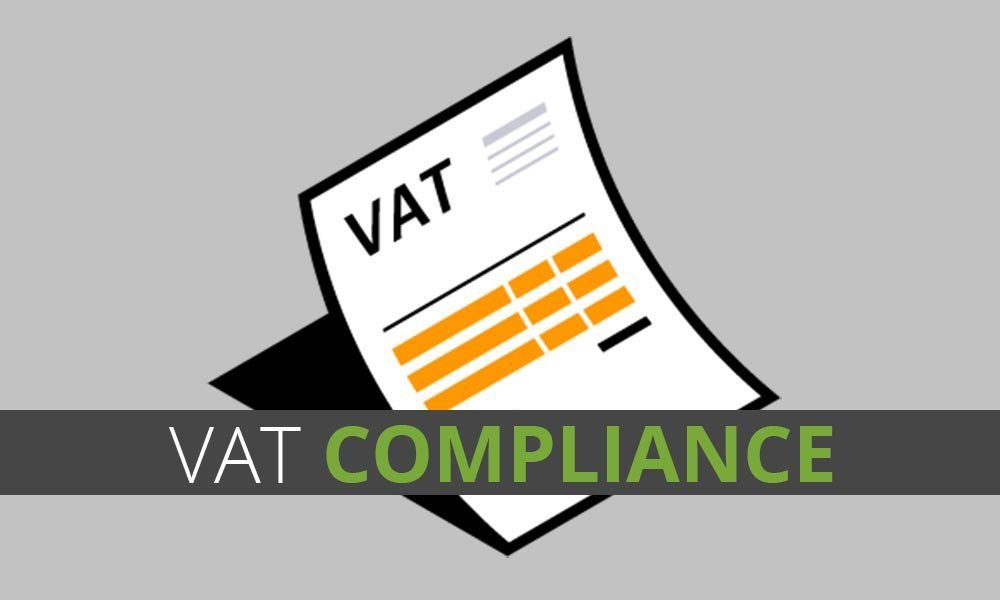
Navigating the complex VAT regulations for the gold market and diamond business in the UAE requires a clear understanding of best practices for VAT compliance. Below are key guidelines businesses should follow to ensure they remain compliant with UAE’s VAT laws.
1. Ensure Proper VAT Registration
To ensure VAT compliance, businesses in the diamond sectors and gold and diamond markets must be registered for VAT if their taxable supply exceeds the mandatory threshold. Once VAT-registered, businesses should apply the appropriate VAT rate (5% as per UAE law) on supply of gold and diamond trading activities.
2. Adherence to VAT Filing and Returns
Regularly filing tax returns and keeping track of VAT paid and collected is essential. Businesses should maintain accurate records and submit VAT returns in a timely manner. Misfiling or delays in filing of returns can result in penalties. It is recommended to use automated tools or seek expert advice, such as from Tulpar Global Taxation Services, to avoid any errors in VAT submissions.
3. Correct Use of Reverse Charge Mechanism
Businesses dealing in gold and diamonds should carefully monitor whether the reverse charge mechanism applies to their purchases. Understanding when this mechanism for investors or suppliers applies can reduce VAT exposure and help manage cash flow. For instance, the reverse charge VAT in gold can be beneficial for companies sourcing precious metals from non-VAT-registered suppliers.
4. Maintain a Valid Tax Invoice
A valid Tax Invoice is essential for claiming VAT input credits. Every transaction should be accompanied by a properly issued invoice that clearly shows the VAT amount. If a supplier does not issue a valid Tax Invoice, the buyer may not be able to claim VAT, which could lead to financial losses.
5. Stay Updated on VAT Changes
The VAT landscape in the UAE can evolve, and keeping up with any VAT publication clarifications or changes to the Cabinet Decision No regarding VAT laws is crucial. It’s important for businesses in the diamond trading and gold sectors to be aware of any modifications in VAT laws to ensure they are compliant with the most recent rules.
6. Leverage VAT Consulting Services
Given the complexities involved, businesses in the gold or diamonds sectors should consider working with VAT consultants like Tulpar Global Taxation Services to ensure compliance. Professional advice can help businesses identify exemptions, optimize their VAT position, and streamline the cash flow by ensuring proper VAT payments are made.
By adhering to these best practices, businesses dealing with precious metals, whether in gold, diamonds, or other related sectors, can stay compliant and avoid the risks associated with improper VAT application and late payments. In conclusion, understanding the nuances of VAT in the gold and diamond sectors is vital to managing compliance, mitigating cash flow risks, and ensuring business sustainability in the UAE market.
The Future of VAT in the Gold and Diamond Industries
The landscape of Value Added Tax (VAT) in the gold and diamond industries is continuously evolving, and businesses in these sectors need to stay ahead of VAT rules to ensure full compliance. With the rise of e-invoicing, VAT rules are becoming stricter, requiring businesses to adapt quickly. Tulpar Global Taxation Services plays a vital role in guiding companies through the complexities of VAT obligations, ensuring compliance with VAT rules, and minimizing potential tax risks for businesses dealing in gold, diamonds, and other precious metals.
Impact of VAT on Diamond and Gold Market
The application of VAT to supplies of gold and diamonds continues to shape the market dynamics, both locally and internationally. In countries such as the UAE, VAT is applicable to gold products, including gold bars, gold-making charges, and even diamond products. Businesses engaged in gold trading, whether in raw materials, jewelry, or finished gold products, are required to charge VAT on the supply, ensuring that VAT is collected at the time of supply and properly accounted for in VAT returns.
For example, when businesses produce or manufacture gold, they are required to charge VAT on the sale, and the VAT payable on the sale must be reported in the VAT return. This includes any applicable VAT on supplies made by licensed entities and registered businesses in the gold and diamond industries. Whether dealing with the purchase of gold, gold transactions, or the sale of diamond products, businesses must ensure they meet VAT requirements, including input tax recovery and exemption of VAT when applicable.
VAT Regulations and Compliance
As the VAT regulations for gold and diamonds are constantly evolving, compliance with VAT rules is essential. Businesses must maintain proper documentation, including an invoice with details of the transaction, and ensure they can produce a declaration in writing stating the VAT due on the supply. This helps in the filing of VAT returns, which must be accurate to avoid penalties for incorrect VAT reporting.
One of the most significant challenges for businesses is ensuring that VAT is accounted for at the time of supply. This means that VAT is due when a transaction takes place, and it is crucial to file the VAT return accordingly. Tulpar Global Taxation Services can provide assistance with VAT compliance, ensuring that businesses file returns on time and fulfill VAT obligations such as input tax recovery and VAT payable on the sale. Additionally, businesses must keep in mind the applicability of VAT on imports, particularly when it comes to the import of investment-grade precious metals. The VAT liability may vary depending on whether the purchase qualifies as a single supply or a separate supply, and the impact on imports could significantly affect the cash flow of businesses.
VAT on Imports and Export of Gold and Diamonds
Gold and diamond business engaged in the export or import of goods are also impacted by VAT laws. For instance, VAT exemptions are often granted for exports of gold and diamonds, making it a strategic destination for foreign investors. However, when businesses import gold, VAT must be accounted for, and businesses may face a cash blockage in the process, especially when importing investment-grade precious metals.
With regards to diamond business, the VAT regulations require proper accounting of VAT on the supply and sales of diamonds among registered businesses. Whether selling gold or diamonds, VAT regulations mandate that businesses charge VAT on the sale and file VAT returns accordingly. Tulpar Global Taxation Services provides expert consultancy to ensure businesses understand VAT exemptions, imports of gold, and other complexities tied to VAT liabilities and input tax rebate.
VAT Returns and E-Invoicing Compliance
As VAT rules tighten, businesses in the gold and diamond industries are increasingly required to use e-invoicing systems. E-Invoicing compliance ensures that invoices, including those issued for the purchase of gold and diamonds, are generated and submitted electronically. This step simplifies the VAT reporting process and enhances transparency for tax authorities. The move toward e-invoicing also ensures that all invoices, including Arabic invoices, contain the correct details required for VAT filing.
The proper filing of VAT returns is crucial for businesses, and Tulpar Global Taxation Services plays a key role in ensuring timely submission. Companies must accurately report VAT due on the supply of gold and diamonds, taking into account the input tax and VAT due on the supply. This ensures that VAT is collected and remitted to the authorities in compliance with the applicable VAT laws.
Navigating VAT Compliance in the Gold and Diamond Industries
The future of VAT in the gold and diamond industries depends on businesses’ ability to stay updated with VAT requirements and navigate the complexities of VAT obligations, including VAT registration, filing VAT returns, and ensuring compliance with VAT regulations. Whether dealing with VAT payable on the sale of gold, accounting for VAT on the supply of diamonds, or recovering input tax, businesses need expert assistance to ensure smooth operations.
Tulpar Global Taxation Services is committed to supporting businesses in the gold and diamond market by offering comprehensive tax services, including assistance with VAT compliance, guidance on VAT registration, filing of VAT returns, and managing the VAT liability effectively. With their expertise in the gold tax landscape, companies can rest assured that they are on the right track to manage VAT rules, minimize VAT liabilities, and seize the opportunities presented by the gold and diamond markets, ensuring growth in the future.
